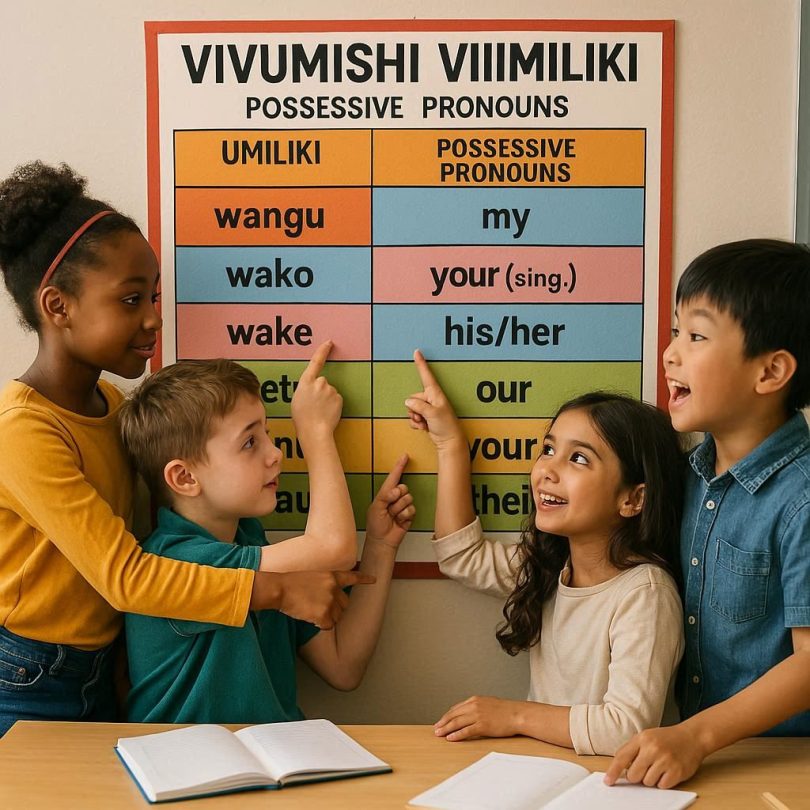What Are Possessive Pronouns?
Possessive pronouns are words used to show ownership or possession. Instead of repeating the noun, we use a possessive pronoun to say that something belongs to someone.
Swahili Definition:
Possessive pronouns ni maneno yanayoonyesha umiliki. Badala ya kurudia jina au nomino, tunatumia kiwakilishi cha umilikaji kuonyesha kwamba kitu ni cha mtu fulani.
Common Possessive Pronouns in English and Their Swahili Meanings
| English | Swahili | Usage Example (EN) | Mfano (SW) |
|---|---|---|---|
| Mine | Changu | This book is mine. | Kitabu hiki ni changu. |
| Yours | Chako/Chenu | The pen is yours. | Kalamu ni yako. |
| His | Chake | That bag is his. | Mfuko ule ni wake. |
| Hers | Chake | The shoes are hers. | Viatu ni vyake. |
| Its | Chake | The cat broke its toy. | Paka alivunja kifaa chake. |
| Ours | Chetu | This farm is ours. | Shamba hili ni letu. |
| Theirs | Chao | The house is theirs. | Nyumba ni yao. |
Note: In Swahili, possessive pronouns can change form depending on the class of the noun (like kitu – changu, nyumba – yangu). The table above simplifies this for beginner learners.
Key Tips for Learners
- Possessive pronouns in English replace the noun to avoid repetition.
 This is my phone. That one is yours.
This is my phone. That one is yours. - In Swahili, the possessive part often agrees with the noun class.
 Kalamu yangu (my pen), Kalamu yako (your pen).
Kalamu yangu (my pen), Kalamu yako (your pen).
More Example Sentences
| English Sentence | Swahili Translation |
|---|---|
| That car is mine. | Gari hilo ni langu. |
| Is this phone yours? | Je, hii simu ni yako? |
| The dog ate its food. | Mbwa alikula chakula chake. |
| The books are ours. | Vitabu hivi ni vyetu. |
| These seats are theirs. | Viti hivi ni vyao. |
Exercise Section (Practice Time!)
Translate the following into Swahili:
- That pen is mine.
- The house is theirs.
- Is this chair yours?
- The baby drank its milk.
- These shoes are hers.
Summary
- Possessive pronouns help us avoid repeating nouns.
- In English, they include: mine, yours, his, hers, its, ours, theirs.
- In Swahili, the pronoun agrees with the noun class, e.g., changu, yangu, yake, yetu.
Created for students
Image: bing







